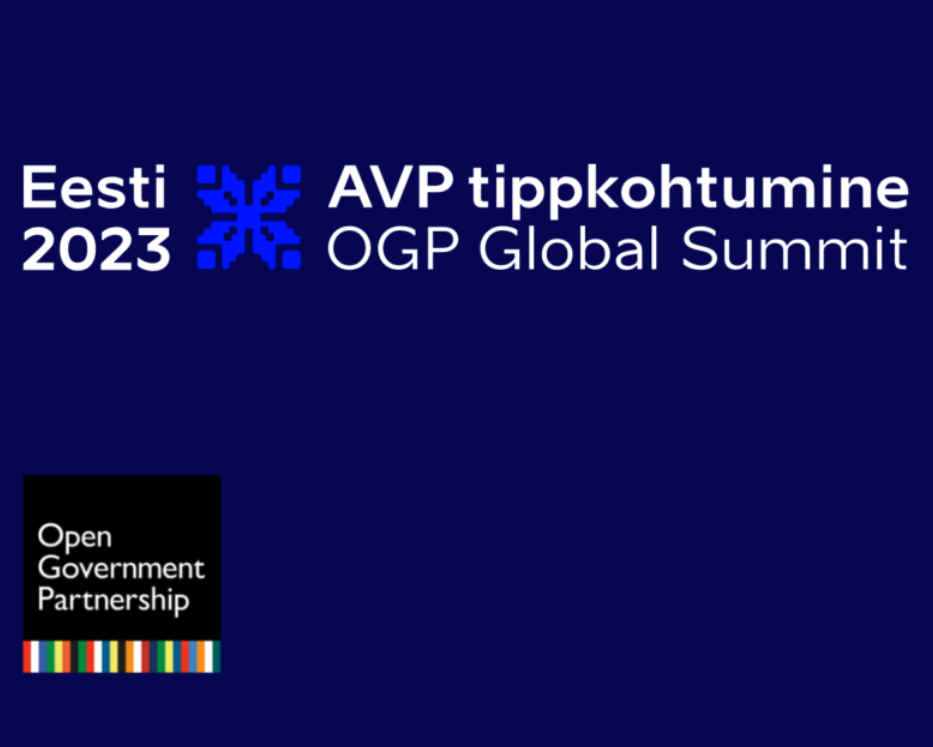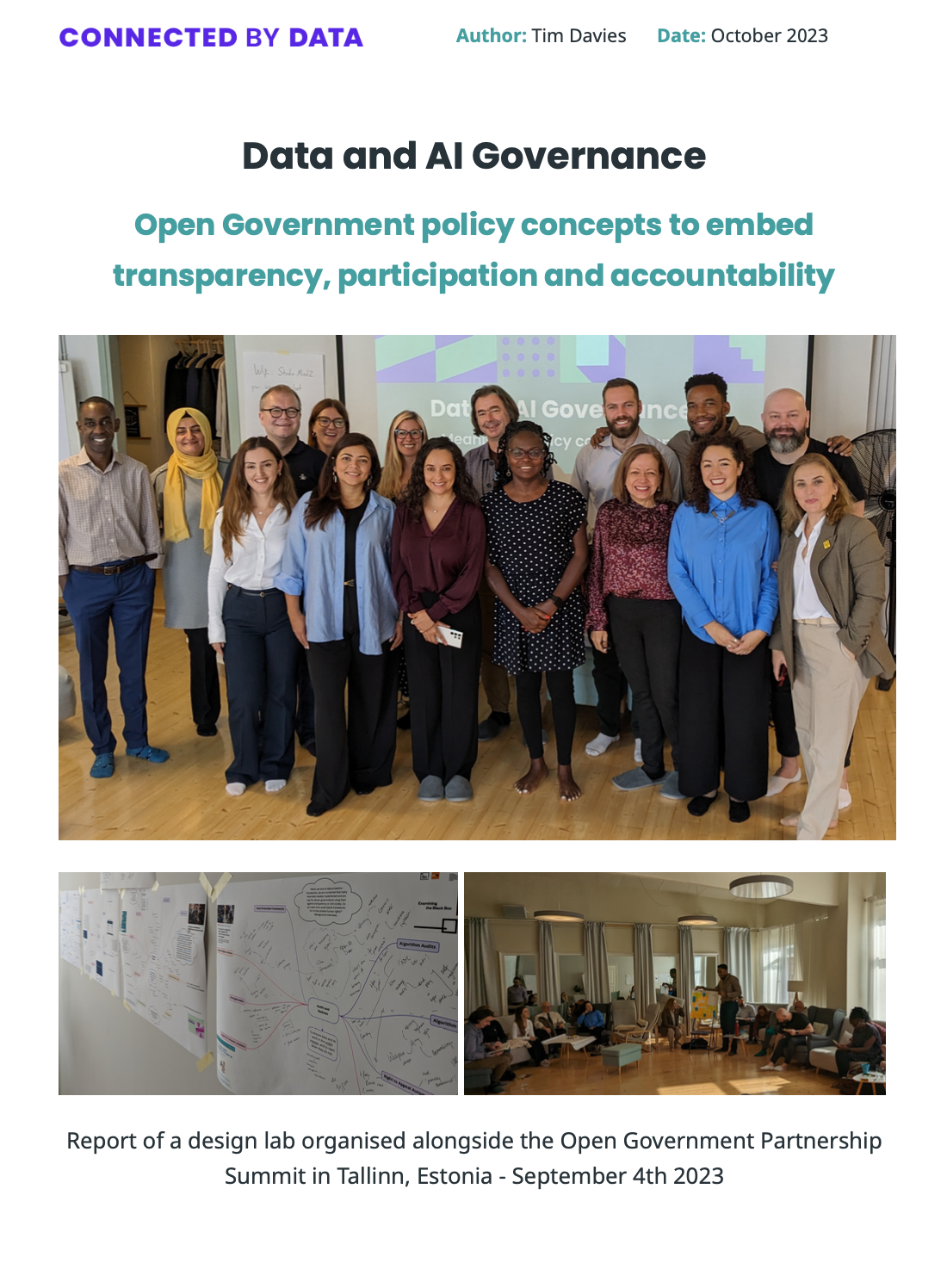Data and AI Governance - securing meaningful commitments on transparency, participation and redress (Design Lab)
As datafication accelerates, and algorithmic or artificial intelligence systems are adopted across public and private sectors, governments need to adopt bold measures that can deliver effective governance of data and AI. Three critical aspects of this will be transparency, public participation, and redress. However, policy advocacy in these areas has been relatively underdeveloped. This design lab developed model committment drafts to inform future open government action.
Read up on our Connected Conversation discussion of workshop findings
Workshop report
In September 2023, Connected by Data brought together a diverse group of civil society, government and academic stakeholders on the fringes of the 2023 Open Government Partnership Summit in Tallinn, Estonia, to co-design model policy commitments that could deliver meaningful transparency, participation and accountability in data and AI governance.
The three concepts outlined in this report directly respond to the Open Government Challenge on Public Participation and Digital Governance and set out concrete proposals for national and local government action. We encourage governments and civil society to build on these concepts in developing policy commitments both within, and beyond, the Open Government Partnership action planning process.
Governments should focus on:
- Participatory oversight of technology procurement through creation of multi-stakeholder oversight groups that are empowered to advise, question and publicly report on public sector data and AI procurement.
- Deliberative development of data and AI strategies at both national and local levels through use of both open, and more targeted, participation processes.
- Strengthening citizen voice within sectoral regulators to create a robust feedback loop and ensure data and AI firms have social licence to operate in the way they do.
The full report (PDF) provides more details on the case for these commitments, and how to make them effective open government measures.
Original invite
-
Data & AI transparency can take many forms, including: transparency registers that record information on data collected, or AI systems deployed; model cards that describe how algorithms work; industry transparency reports detailing issues arising; and reactive transparency rights. Numerous voluntary transparency schemes have emerged in recent years, but few are able to guarantee that there will be meaningful transparency whenever data and AI impact on communities.
-
Public participation can be used to shape policy, inform regulatory action, and establish social licence for data re-use. Both governments and industry have expressed significant interest in using deliberative participation mechanisms to address complex technology governance issues. At the same time, tokenism and ‘participation-washing’ are major risks, and participation around data and AI governance remains ad-hoc.
-
Redress is a vital part of ensuring accountability for the impacts of data and AI. Providing meaningful redress requires rights of action (both individual and collective), as well as engaged regulators and mechanisms for cross-border redress.
CONNECTED BY DATA, the campaign for communities to have a powerful voice in data governance, are convening a workshop ahead of the Open Government Partnership Global Summit on 4th September 2023 in Tallin, Estonia, to co-design concrete policy commitments on data and AI governance.
About the Open Government Partnership
The Open Government Partnership (OGP) is an international initiative that aims to promote transparency, accountability, and citizen participation in government. The main goal of the Open Government Partnership is to improve governance and strengthen democracy by fostering greater openness and responsiveness in government activities. Participating countries commit to developing and implementing action plans that include specific open government commitments. These commitments can cover a wide range of areas, such as access to information, citizen engagement, anti-corruption measures, and technology and innovation in governance.
Digital technology is a key theme in the new Open Government Partnership strategy, yet there are few ‘common commitments’ that countries can make around governance of data and technology. In the past, the OGP has provided an effective platform to elevate common commitments (such as Open Contracting, and Beneficial Ownership Transparency).
Design Lab background
With support from Omidyar Network, CONNECTED BY DATA are running a series of design labs: workshop convenings with diverse groups of thinkers and practitioners to address specific challenges around data governance narrative, policy and practice.
This lab builds on an earlier workshop, hosted alongside RightsCon 2023, exploring shared policy and advocacy agendas on collective data governance. This workshop identified the need for clear policy asks on: transparency, participation, redress and capacity building. Three of these themes will be taken up in this workshop.

